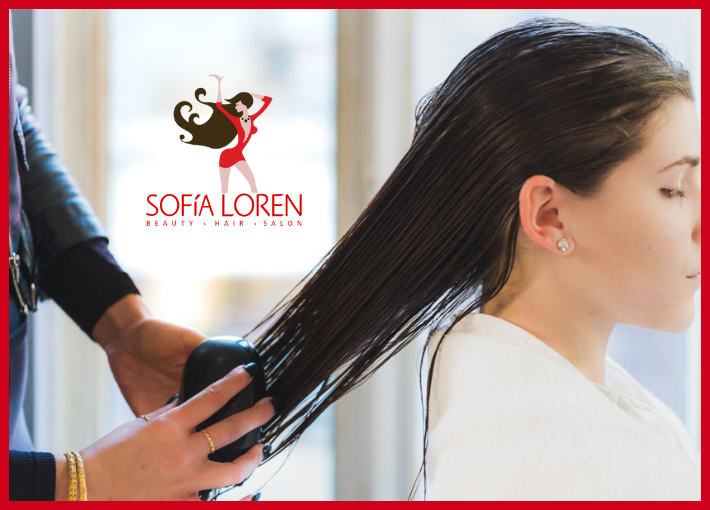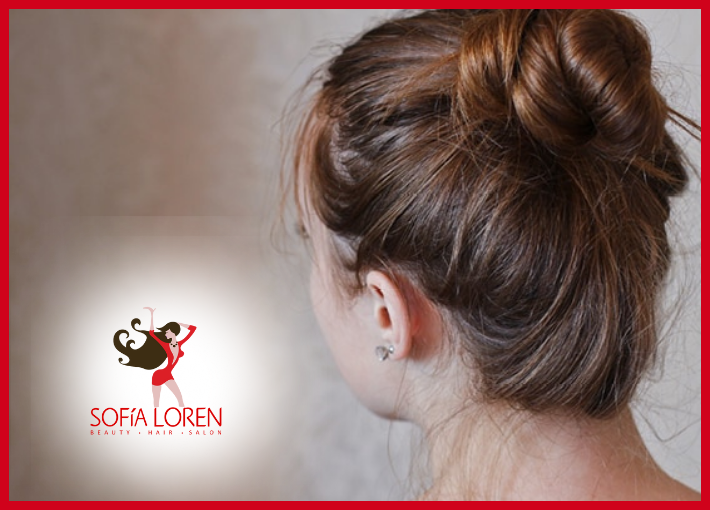Oily hair can be the makings of a bad start to the day. The good news is that there are plenty of remedies to help you get it under control. Understanding its causes is the first step to solving and managing your oil slick. Read about some of the things that can cause excessive grease in your hair and stop it from happening.
You know your hair and what to expect from it. You know if you’re a two-day-wash girl or a three-day girl (or maybe even a lucky four-day girl). This is why, when you all of sudden can’t make it more than one day without an oil slick showing up, it can be annoying. You may not realize it, but everything from your diet to your hormones may be affecting your sebum production (an oily or waxy matter produced to help lubricate the skin and hair). We’ve pinpointed the reasons why one minute your hair is looking like blowout magic, and the next, it’s a messy bun plus dry shampoo for days—and how you can get rid of it.
We talked to stylists from the Rob Peetoom Salon in NYC and trichologist and HairClub hair health expert, Shab Reslan to get to the root of what causes your scalp to go into oil overdrive. Scroll down to see what may be causing your greasy strands, and what they recommended to keep your hair looking its best.
Reduce Stress When You Can
Oily hair can be caused by several different reasons. According to Rob Peetoom, master stylist Linda de Zeeuw, “Greasy hair is the result of overactive sebaceous glands when they are producing too much sebum,” she says. “Although sebum is good for the hair, too much can make your hair look slick and greasy. Common causes of oily hair are unhealthy eating habits, medications, improper hair care, stress, hormonal fluctuations, and change in weather.”
Stressing about work deadlines? Woke up with oily hair? Stressed about work deadlines and your oily hair? We face stress and anxiety every day, but trying to balance a heavy load of stress can do more damage than that extra cup of coffee. When we are stressed, the body releases a hormone called cortisol. When our cortisol levels rise, it may cause the sebaceous glands in our scalp to be stressed as well, sending them into overdrive, producing and releasing more sebum, and causing oil buildup.
Brush Your Hair
Brushing your hair is incredibly important, especially if you have oily hair. “Brushing your hair can decrease the look of oily hair as it distributes the oils down your strands. As with any oil, your natural oils can protect your hair but that doesn’t change the fact that your roots are still greasy looking and most likely clogging your follicle openings,” explains Reslan.
Avoid Refined Sugars and Dairy
Your diet can also influence how much oil your scalp produces. Rob Peetoom advanced stylist, Michael Bowman says, “A diet rich in sugars, dairy products, and red meats can make the scalp produce more oil.” This means consuming high amounts of these foods can wreak havoc on your scalp. The hormones in dairy products are believed to break down into androgens (hormones) after consumption resulting in an overproduction of sebum.
Extra oil can also mean your hair has a hard time holding a style. You can try the Bumble and bumble Spray de Mode flexible hairspray that doesn’t weigh down your locks.
Bowman also suggests using lightweight products that won’t weigh down your hair even more. “Try to blow dry as often as you can (to bring your natural oils down the hair). Apply a shine spray or definition mist to a brush or hands and brush the hair. Don’t apply it straight on the hair,” he says.
If your hair is still giving you trouble, opt for a style that will stay in place. “For those with long hair, it’s easiest to make a ponytail, bun, or braid to keep the hair in place,” de Zeeuw says. “If you have short hair, you can use a hair powder on the roots to absorb excess oil while adding instant volume.” We recommend trying Davines This is a Texturizing Dust ($29).
Use a Clarifying Shampoo
Hormone imbalance occurs when you are overly stressed or anxious, and before or during that time of the month. When the level of androgens (hormones) increases, which happens when you’re experiencing a hormone imbalance, this puts your body in a slightly stressed state, making the glands in your scalp produce more oil. To help combat this extra oil your hair is producing, try a clarifying shampoo.
de Zeeuw suggests switching up your old routine, too, and to avoid washing your hair every day. “Try to wash your hair twice a week with a clarifying shampoo or use the Davines Solu Sea Salt Scrub Cleanser ($42), which is crafted from all-natural ingredients, and provides a deep yet delicate cleanse removing all impurities and build-up, and use a dry shampoo in between washings to make your hair look fresh.” However, Reslan adds, “Oily hair stems from an oily scalp and occurs when the scalp itself is not sufficiently cleansed over time, causing the sebum to run down the hair shaft. Infrequent shampooing and single shampoos per shower can lead to improper cleansing of the scalp.” You can determine which shampoo method works best for you and your hair.
While dry shampoo is great in a pinch, Bowman also warns that people can sometimes use too much, which leads to even more build-up and clogged pores between washings. Be sure not to overload with the dry shampoo on oily days. “I recommend avoiding the use of hard-to-rinse products like dry shampoo and hair oils that can build up on the hair and become difficult to wash out,” explains Reslan.
For a DIY build-up busting option, de Zeeuw also shared a recipe for an apple cider vinegar solution to help reset your scalp’s pH. Create a mixture of one part apple cider vinegar and eight parts water. Put the solution in your hair, let it soak for a few minutes, and rinse it out with clean water.
Take Your Vitamins
A hard-to-control oily scalp may be in your genes. Certain diseases and medical conditions, like polycystic ovary syndrome, liver congestion, and Sjögren’s syndrome (a long-term autoimmune disease), can cause an overproduction of oil.
Bowman also suggests zinc-based supplements to help increase immune defenses and betacarotene helps skin repair more quickly. “Choosing foods with whole grains, fish, and rich in vitamin E will help with oil production,” he says.
Taking supplements with vitamin B6 or essential fatty acids might help to control deficiencies and get your body’s balance back on track.
Remember Your Fatty Acids
Essential fatty acids are a key component of a healthy, balanced lifestyle. Making sure you eat enough of these may help combat excess sebum on the scalp and tame those oily strands. EFAs are found in nuts, seeds, fatty fish, and unrefined whole grains, so stock up on those almonds.
We have the top treatments on the market to offer YOU the glamorous hair you deserve! Sofia Loren brings the best qualities and techniques to you. Schedule your appointment today at 561.405.1884 with our hair experts in Boca Raton. Find us on our Facebook page for more tips.
Reference: [https://www.byrdie.com/why-your-hair-is-oily-4686902]


